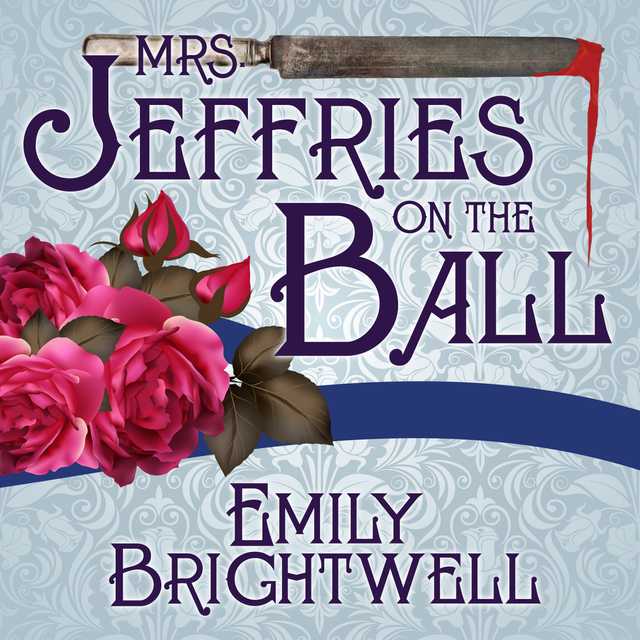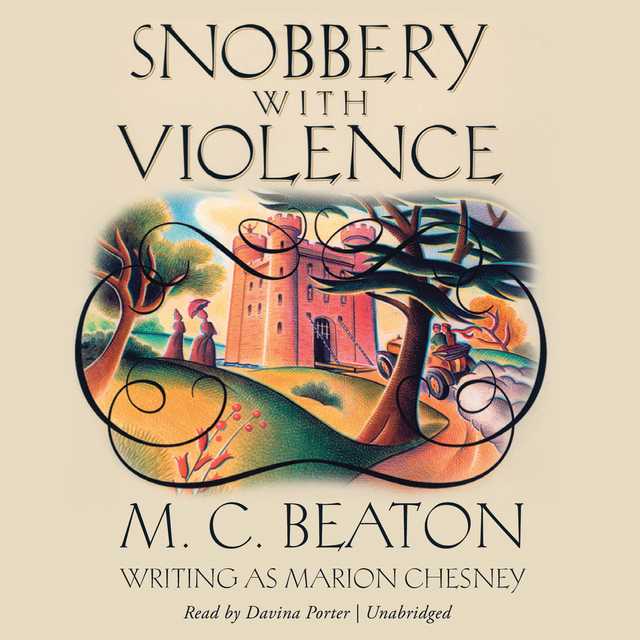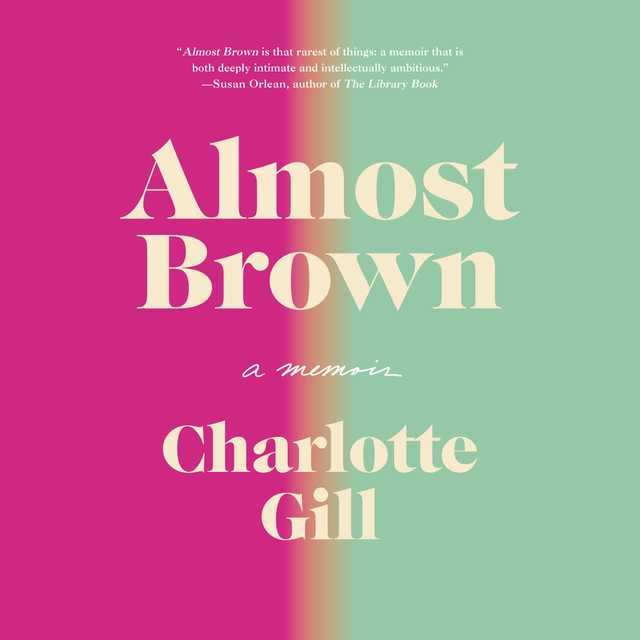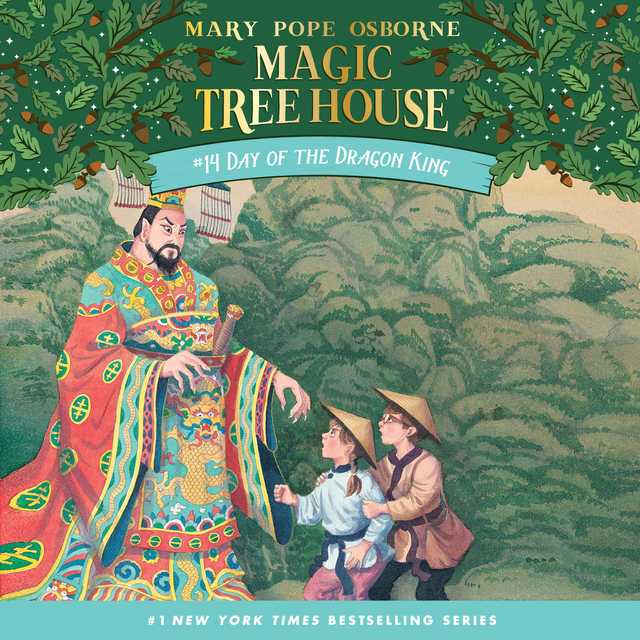The Last Kingdom Audiobook Summary
The first installment of Bernard Cornwell’s bestselling series chronicling the epic saga of the making of England, “like Game of Thrones, but real” (The Observer, London)–the basis for The Last Kingdom, the hit BBC America television series.
This is the exciting–yet little known–story of the making of England in the 9th and 10th centuries, the years in which King Alfred the Great, his son and grandson defeated the Danish Vikings who had invaded and occupied three of England’s four kingdoms.
The story is seen through the eyes of Uhtred, a dispossessed nobleman, who is captured as a child by the Danes and then raised by them so that, by the time the Northmen begin their assault on Wessex (Alfred’s kingdom and the last territory in English hands) Uhtred almost thinks of himself as a Dane. He certainly has no love for Alfred, whom he considers a pious weakling and no match for Viking savagery, yet when Alfred unexpectedly defeats the Danes and the Danes themselves turn on Uhtred, he is finally forced to choose sides. By now he is a young man, in love, trained to fight and ready to take his place in the dreaded shield wall. Above all, though, he wishes to recover his father’s land, the enchanting fort of Bebbanburg by the wild northern sea.
This thrilling adventure–based on existing records of Bernard Cornwell’s ancestors–depicts a time when law and order were ripped violently apart by a pagan assault on Christian England, an assault that came very close to destroying England.
Other Top Audiobooks
The Last Kingdom Audiobook Narrator
Jamie Glover is the narrator of The Last Kingdom audiobook that was written by Bernard Cornwell
BERNARD CORNWELL is the author of over fifty novels, including the acclaimed New York Times bestselling Saxon Tales, which serve as the basis for the hit Netflix series The Last Kingdom. He lives with his wife on Cape Cod and in Charleston, South Carolina.
About the Author(s) of The Last Kingdom
Bernard Cornwell is the author of The Last Kingdom
More From the Same
- Author : Bernard Cornwell
- The Winter King
- Lords of the North
- Sharpe’s Revenge
- Excalibur
- Enemy of God
- Publisher : HarperAudio
- Abraham
- American Gods [TV Tie-In]
- Dead Ringer
- House of Sand and Fog
- Prey
The Last Kingdom Full Details
| Narrator | Jamie Glover |
| Length | 5 hours 26 minutes |
| Author | Bernard Cornwell |
| Category | |
| Publisher | HarperAudio |
| Release date | January 18, 2005 |
| ISBN | 9780060834982 |
Subjects
The publisher of the The Last Kingdom is HarperAudio. includes the following subjects: The BISAC Subject Code is Fiction, War & Military
Additional info
The publisher of the The Last Kingdom is HarperAudio. The imprint is HarperAudio. It is supplied by HarperAudio. The ISBN-13 is 9780060834982.
Global Availability
This book is only available in the United States.
Goodreads Reviews
h.
August 21, 2013
A Review That Has Very Little to Do with This Book:Sometimes you need a lot of book. You know what I mean. Those Fridays you come home, lie down on the couch, and resolve not to come back until Sunday afternoon. You have vetoed faces and the spoken word. The phone will remain unplugged except for the ordering of something greasy.On these Fridays you have two options: dissolve into a self-pitying, gelatinous blob or turn to a lot of book. You are not without survival skills. You put stock in the usefulness of books. They’ve gotten you through weekends when you waited for the phone to ring, times when your flight’s been cancelled, road trips with the family. So, you know to turn to a lot of book.What you don’t need is Joyce stinking up the joint. What you need on this weekend is something with a clean plot, a protagonist that will win, and somewhere to go far, far from here. You need good historical fiction. Miniver might push Ivanhoe, but let’s face it, such nobility will exhaust you. This weekend may I suggest the sword’s song, and the whale’s way, and the red dawn?What you need is a series --- something that weighs in at 2,000 plus pages so there’s no danger of running out. Go ahead. Follow the nose of the masses. This series is a bestseller: you can count on its opiate properties. It’ll get you through til dawn. And Bloody Sunday.
Petrik
January 03, 2021
I have a Booktube channel now! Subscribe here: https://www.youtube.com/petrikleoUthred, son of Uthred, it’s finally time for me to read your story in its prose form.I am no stranger to Bernard Cornwell’s work, ever since John Gwynne recommended me The Warlord Chronicles trilogy—which I finished and loved—to read, I was already a fan of his books; even though I haven’t read any of his other books yet. Unfortunately, I haven’t gotten the chance to read his other books. Seeing that I’m fully caught up with The Last Kingdom TV series adaptation, one of my favorite ongoing TV series right now, and I’m super impatient to wait for the next season to come out, I figure this year is the right time for me to read the series. “I had the arrogant confidence of a man born to battle. I am Uthred, son of Uthred, son of another Uthred, and we had not held Bebbanburg and its lands by whimpering at altars. We are warriors.” The Last Kingdom is the first out of thirteen books in The Last Kingdom series by Bernard Cornwell. The plot revolves around Uthred of Bebbanburg, an orphaned English boy who is captured by the Danes, and then he’s taught the way of the Vikings. Surprisingly, Uthred grows to love the Danes’ way of living, and things became more difficult for him because Alfred’s life is also intertwined with him. This first book showcases a few years within Uthred’s younger life, and it is certainly an interesting one. I’ve mentioned earlier that I loved the TV series adaptation, but I will clarify that I loved the TV series since its second season, not immediately from its first season. Fortunately, it seems likely that I’m going to love the books even more because I loved this one right from the start. Leadership, loyalty, faith, family, and the thirst for battles are prominent themes within this book—and the series—and everything about them was executed wonderfully. “What do we look for in a lord? Strength, generosity, hardness, and success, and why should a man not be proud of those things? Show me a humble warrior and I will see a corpse.” No offense to Alexander Dreymon, but one thing that, in my opinion, the first season failed to capture was Uthred’s fascination and thrill for battles. Reading this proved to be quite an intriguing experience, I think Cornwell did a much better job on Uthred’s characterizations. To be fair, though, this is one of the biggest benefits of reading the book instead of the adaptations. It was also great to see the first appearances of the major characters again. Alfred, Father Beocca, Brida, Ragnar, Leofric, and many more to come are all great characters, and I loved reading Uthred’s interaction with each and every one of them. If you love the characters within this book already, believe me, the two best side characters of the series—Finan and Sithric—haven’t even appeared yet, and I myself am so looking forward to meeting them in the books. “War is fought in mystery. The truth can take days to travel, and ahead of truth flies rumor, and it is ever hard to know what is really happening, and the art of it is to pluck the clean bone of fact from the rotting flesh of fear and lies.” It’s been a long time since I’ve read the Warlord Chronicles trilogy, and reading this once again reminded me just how good Cornwell is at writing battle scenes. Not only that, there’s something about Cornwell’s prose and the drama he weaved that just seemed to clicked with me incredibly well. For some reason, I didn’t know that the books will be narrated by an older Uthred that retells his life from the beginning, and Cornwell simply excels at doing this type of storytelling. “What happens to you, Uhtred, is what you make happen. You will grow, you will learn the sword, you will learn the way of the shield wall, you will learn the oar, you will give honor to the gods, and then you will use what you have learned to make your life good or bad.” The Last Kingdom covers only a small section of Uthred’s life and adventure. It is a great start to one of the most famous historical fiction series right now, and I’m so looking forward to reading the next book in the series. Due to the episodic nature of the series, I’m going to read only one or two books in the series per month to avoid feeling burnout. That’s what I did with The Expanse and The Dresden Files and it worked incredibly well for me. But yes, this is one of my priority series to finish this year. Destiny is all.You can order the book from: Book Depository (Free shipping)You can find this and the rest of my reviews at Novel NotionsSpecial thanks to my Patrons on Patreon for giving me extra support towards my passion for reading and reviewing!My Patrons: Alfred, Alya, Annabeth, Ben, Blaise, Devin, Diana, Edward, Estefani, Hamad, Helen, Jimmy Nutts, Joie, Lufi, Melinda, Mike, Miracle, Nicholas, Summer, Zoe.
Markus
October 06, 2015
"My name is Uhtred. I am the son of Uhtred, who was the son of Uhtred and his father was also called Uhtred. My father’s clerk, a priest called Beocca, spelt it Utred. I do not know if that was how my father would have written it, for he could neither read nor write, but I can do both and sometimes I take the old parchments from their wooden chest and I see the name spelled Uhtred or Utred or Ughtred or Ootred, and I look at the deeds which say that Uhtred, son of Uhtred, is the lawful and sole owner of the lands that are carefully marked by stones and by dykes, by oaks and by ash, by marsh and by sea, and I dream of those lands, wave-beaten and wild beneath the wind driven sky. I dream, and know that one day I will take back the land from those who stole it from me."I felt like I needed to write a proper review for this book, if for no other reason than to tell every single soul that could possibly read the words I'm writing that this is the absodamnlutely best series ever written within the genre of historical fiction. If you're looking to start reading historical fiction and have little experience with the genre, read this. If you're a longtime fan of medieval history and vikings and anything even slightly similar, read this. If you're intending to only ever read one historical fiction series, pick this one!Northumbria. 866 AD. Osbert, second in line to the castle of Bebbanburg, is ten years old. For the first time since the infamous sack of Lindisfarne and the start of the Viking era, the barbarian Danes return to England to pillage and plunder to the full satisfaction of their greed. Osbert's elder brother is among the first to fall to the swords of the wicked pagans. And because of tradition set in stone among the great lords of Bebbanburg, Osbert must now give up his name for that of his dead brother. From this day, he is known as Uhtred Uhtredsson. Uhtred of Bebbanburg."There’s war between the gods, Uhtred, war between the Christian god and our gods, and when there is war in Asgard the gods make us fight for them on earth."The Northumbrian army marches to take back the captured city of Eoferwic, resulting in a catastrophic defeat. The lord of Bebbanburg is slain in combat, and young Uhtred is captured by the Danes. He lives with the dangerous raiders from the north for years, and grows into adolescence under the watchful eye of Ragnar the Fearless. Thus begins a tale of the Saxon who becomes a Viking. Of the pagan who becomes a champion of Christendom. Of a man whose loyalties are forever torn. Of a man whose name is whispered in the ears of kings, is feared by warriors from all sides of the great war, and terrifies pious priests into making the sign of the Cross. Thus begins the tale of Uhtred."Pride makes a man, it drives him, it is the shield wall around his reputation... Men die, they said, but reputation does not die."Let's settle one thing here: Uhtred of Bebbanburg is the best protagonist I've ever encountered in fictional literature. All the amazing protagonists in the genres of fantasy and science fiction can go hide in a corner when this guy is around. His fierceness in both battle, love and faith has no match anywhere else, and his twin allegiances and friends on both sides of the main conflict turn him into a remarkably interesting person who is constantly doubting his own loyalty and identity.That praise should say a whole lot about Cornwell's skills at characterisation, especially considering that Uhtred is not even my favourite character in this series. But there are tons of great characters hidden in every chapter of the book. From ruthless and bloodthirsty Norse warriors, to Saxon leaders with their ambitions exceeded only by their piety. From pagan witches to scheming priests. And from the lowliest of slaves on the Viking ships, to kings and princesses fighting for power. All of those are to be found on the pages of The Saxon Stories, alongside so many more.But this series is also so much more than the tale of Uhtred. It is the story of cultures and faiths clashing violently. Of the mythology and origins of one of the most powerful nations in history. Of how England, a name not yet widely known, was united under one great kingdom.Cornwell's eloquent writing style, the dramatic first-person narrative, the magnificent early medieval setting, the most interesting and conflicted main character I have ever read about and historical realism gracefully and skillfully combined with masterly storytelling ; all of it adds up to a truly fascinating story of war, love and death in Anglo-Saxon England.I'm going to say it one more time: this is my favourite series. Do yourself a favour and read it!"Wyrd bith ful araed. Fate is inexorable."
Sean Barrs
February 13, 2016
The Last Kingdom, by Bernard Cornwell, is a triumph of a novel; it is historical fiction at its finest. Uhtred’s story is as fantastic as it is gripping, and most importantly it feels realistic. It’s like I’ve read a chapter of a man’s life that could have existed, that could have been a part of history. His character is just that well written.The book begins with an aged Uhtred narrating his life to the reader. He is full of a life’s wisdom and a warrior’s experience as he tells the adventures of his youth. He looks back at the decisions he made with equal measures of regret and joy at his foolhardiness. This is where the author triumphs most: he tells the reader where his protagonist is going to end up, at the end of his life, and urges them discover how he got there. But I am Uhted, son of Uhtred, and this is the tale of a bloodfeud. It is a tale of how I will take from my enemy what the law says is mine. And it is the tale of a woman and of her father, a king. Uhtred is the second son of Earl Uhtred. Consequently, as second in line, his farther wanted him to be a priest, which is a life Uhtred would never choose for himself. After the death of his brother, his farther names him is heir and expects him to witness battle, which the invading Danish fleet provide. His farther is killed in the battle and Uhtred captured by a Danish warrior called Ragnar. It sounds all doom and gloom, except Ragnar is what Uhtred wanted his father to be. He is a fearless warrior without religious restraints. Furthermore, and more importantly, he shows Uhtred warmth. Something his farther withheld. It is no surprise that his would be captor becomes something of a role model to the growing warrior that is Uhtred. "And that is how I met Ragar, Ragnar the Fearless, my brother’s killer and the man whose head was supposed to grace a pole on Bebbanburg’s ramparts, Earl Ragnar." This leaves our protagonist in an odd situation. He is an Englishman, but is living as a Dane. So where do his loyalties lie? These questions do not occur to Uhtred till he is a man grown and spent his youth as a Danish warrior. He worships Thor and Odin and marvels at the Danish pride that is their magnificent ships. The inner conflict that builds is tremendous. We know where his path will eventually take him, and what side of the bloody shield wall he will belong on, but are clueless to how he will actually get there. Suffice to say, I liked this book a lot. Uhtred is a terrific protagonist. This series, however, is not just Uhtred’s tale. It is the tale of how Alfred the Great conquered the Danish invaders and how Christianity further purged pagan beliefs; it is the tale of how Uhtred, a very believable fictional warrior, helped Alfred eventually be considered great. At least, that is the ending we know will happen and the ending we can’t wait to see happen. The Saxon Stories 1. The Last Kingdom- A fine five stars2. The Pale Horsman- -A brilliant five stars3.Lords of the North-A vengeful four stars4.Sword Song- A familiar four stars5.The Burning Land- A loyal five stars6. Death of Kings A mighty five stars He was my king and all that I have I owe to him. The food that I eat, the hall where I live and the swords of my men, all came from, my king, who hated me............ I do love this series. What are your thoughts on the new television adaption?
William
June 09, 2022
I now have a YouTube channel that I run with my brother, called 'The Brothers Gwynne'. Check it out - The Brothers Gwynne “That was in the year 867, and it was the first time I ever went to war. And I have never ceased.”I finally began my journey into The Saxon Stories. I cannot fathom what has taken me so long to delve into The Last Kingdom. I love Bernard Cornwell’s writing, and I love the concept for this tale.This is one of those rare occasions where I have watched the adaptation before reading the book. But, no worries, this did not take away from the experience. The disparity been book and program is large, with a significantly larger period of time spent with Uhtred’s childhood than in the singular episode round-up in the series. It was something that I actually longed for in the program, and I was glad that the growth of Uhtred into an adult was treated more slowly and effectively.This is a retrospective tale from the perspective of Uhtred, who recollects in this first instalment his early days, and the beginning of his forging of a reputation as a great warrior and leader. He is an unreliable narrator who, as the Goodreads summary states, is a dispossessed nobleman who was born a Saxon but raised a Dane This conflict of interests and loyalties becomes a key part of the story, and I believe will continue to do so throughout this series. It is a very interesting, rarely explored dynamic, in which Bernard Cornwell shows the reality that there is no 'right' side.“The preachers tell us that pride is a great sin, but the preachers are wrong. Pride makes a man, it drives him, it is the shield wall around his reputation... Men die, they said, but reputation does not die.”Bernard Cornwell is known as one of the greatest writers of action sequences. It is a reputation that is of course, well earned. Bernard Cornwell immerses you into each and every battle, for the most part. By that slight detraction I mean that sometimes he suddenly changes from an adrenaline pumping sequence, to suddenly changing to a summary of the rest of the battle. I found this to be slightly jarring. But that is about the only criticism I have of this story.Bernard Cornwell maintains strengths in all arenas of writing, but I would say his most impressive strength is his characterisation, and the ability to forge a cast of wide variety. Many authors are amazing at creating a certain type of figure, and they stick to their comfort zone. Any character is Bernard Cornwell’s comfort zone. From a pacifist priest, to an amoral raider, he has each one nailed down, without being stereotypical.“Destiny is all”Overall, I of course thoroughly enjoyed this tale. I love Uhtred’s character. I love the historical period. I love Bernard Cornwell’s prose and battle sequences. He successfully formed a gritty tone and atmosphere of 9th century, war-torn England, with an engaging plot and compelling characters.4.5/5 STARS
James
May 25, 2020
In The Last Kingdom, we follow Uhtred. son of Uhtred who is the Ealdorman of Beddanburg by birthright. In the first-person perspective, Uhtred tells us his tale and throughout The Last Kingdom, he presents his formative years from a youth, through his teenage years to the time that he becomes a man. During the prologue, Danes attack the outskirts of Beddanburg. Uhtred's brother is murdered by a Dane called Ragnar the Fearless. The Saxons retaliate in a pitched battle, during which 9-year-old Uhtred sees his brother's killer and tries to get revenge. "I recognised him as the man who had killed my brother and, like the fool I was, I screamed at him."Seeing the courage and fearlessness that Uhtred already holds at such a young age, Ragnar doesn't kill him but takes Uhtred with him at the end of the battle. Throughout the next years, Ragnar becomes fond of Uhtred and sees him as an adopted son. Uhtred, likewise, loves Ragnar like a father. During this period, Uhtred lives like a Dane. He lives alongside Ragnar's family including his sons, his adopted daughter Brida, his real daughter Thyra, and Rangar's blind and wise father Ravn. Throughout this time Uhtred learns the warrior ways, learns how to speak Danish, and finds out about the ways of Woden, Thor, and the "pagan gods." He takes part in numerous battles and skirmishes against the Saxons and meets the army's heavy hitters such as Ubba, Ivar, and Guthrum.There are so many excellent and memorable characters. Cornwell's penmanship expertly brings them to life. I finished The Last Kingdom yesterday and last night I had a dream about Uhtred and Young Ragnar. It is not often that an author's characters invade my subconscious in such a way. Uhtred is a great character. Not quite Danish and not quite a Saxon. Confused regarding his religious beliefs as he just wants to fight and to get Beddanburg back from his treacherous uncle. Characters like Ubba, Leofric, Ragnar, and Young Ragnar jump of the page and their dialogue exchanges with Uhtred are well composed and extremely memorable. "Destiny is all, Ravn liked to tell me, destiny is everything. He would even say it in English, “Wyrd biõ ful ãræd."When I started reading The Last Kingdom I hadn't watched the BBC series yet. I initially decided that I would read ahead so that the show didn't spoil events for me. I purchased the novel and also the audiobook which features the excellent Jonathan Keeble as Uhtred. This plan didn't quite work out. After I had read the first few chapters I decided to watch the first episode. The finale of this episode reveals a huge moment of death and deceit that doesn't take place in the novel until around 60%. I've only got my self to blame for spoiling it for myself but thought I would highlight this in my review so that potential readers don't make the same mistake. This moment was still extremely powerful and important to the novel's narrative but I think I'd stolen away the unpredictable nature of the incident. The book focused a lot more on young Uhtred than the show. The scenes of Uhtred's youth are extremely important to who he becomes and I think the show missed out on some amazing moments that are featured here. "The preachers tell us that pride is a great sin, but the preachers are wrong. Pride makes a man, it drives him, it is the shield wall around his reputation... Men die, they said, but reputation does not die."The Last Kingdom was an extremely enjoyable historical fiction read that features excellent drama, well-realised characters, and is chock-full of memorable battles and duels. The pacing is great too and at the more heated moments, I almost felt like I was part of the battle bellowing "shield wall!" with the sweat, blood, gore and death dripping from the pages. I am so glad that I started Uhtred's story. With there being 13 books in The Last Kingdom/ The Warrior Chronicles/ The Saxon Stories series I am aiming to read one a month for the foreseeable future. I'd like to thank Edward Gwynne for recommending this series to me.
Nicole
August 27, 2017
This book was good but I had some problems with it, nothing major or about the story but rather the way it's told. Review to come. Maybe.
Dana
August 29, 2019
Great book!I promise to review as soon as possible
HBalikov
June 04, 2021
When I first reviewed this book, I was brief:“Bernard Cornwell is THE master of personalizing British history. His main characters are always interesting and he shows the depth of his research in each novel. This one takes place in the reign of Edward the Confessor, a perilous time for the island kingdom. Cornwell deftly sketches the political and cultural clashes and has (as usual) his protagonist work his way into the midst of it. A great read for those who enjoy burrowing beyond the pure historical.”I agree with my GR friend, Marita:“A thrilling story with a good dash of irony and humour, as well as wonderful descriptions and interesting characters!”Partially because of my friends reviews and partially because I wanted to see after 8 years and 10 novels whether my view of this first novel in The Saxon Tales had changed in any respect, I began the process again. And here is what I found:The Last Kingdom sets up everything that follows. It is a brilliant start to the arc of Uhtred’s life. As in so many other series by Cornwell, he selects an “ordinary” man who becomes capable of extraordinary achievements. Through this individual he retells the history of Britain. What I particularly enjoy is:1. His meticulous research into so many elements of a particular era; and,2. His great talent at making even the most ordinary activities interesting.Through his brilliant writing, history comes alive in a way that the pure historian cannot deliver. Five (*****) stars seem altogether appropriate now that I understand all that Cornwell had in mind when he started his Saxon Stories.If you would like to taste a bit of that special gift, I offer the following two examples:“There were two sorts of iron, he told me, the soft and the hard. The hard made the best cutting edge, but it was brittle and a sword made of such iron would snap at the first brutal stroke, while a sword made of the softer metal would bend as my short sword had done. ‘So what we do is use both,’ he told me, and I watched as he made seven iron rods. Three were of the hard iron, and he was not really sure how he made the iron hard, only that the glowing metal had to laid in the burning charcoal, and if he got it just right then the cooled metal would be hard and unbending. The other four rods were longer, much longer, and they were not exposed to the charcoal for the same time, and those four he twisted until each had been turned into a spiral. They were straight rods, but tightly twisted until each was the same length as the hard iron rods...Three were of the hard metal, which Ragnar called steel...one of the hard rods was longer and slightly thicker than the others, and that one was the sword’s spine and the extra length was the tank onto which the hilt would eventually be riveted…(specific description of the entire process)…this was when the real work began, the work of heating and hammering, metal glowing red, the black dross twisting as it burned away from the iron, the hammer swinging, sparks flying in the dark forge, the hiss of metal plunged into water, the patience as the emerging blade was cooled in a trough of ash shavings. It took days….In some light you could not see the patterns, but in the dusk, or when, in winter, you breathed on the blade, they showed. Serpent-Breath, Brida called the patterns, and I decided to give the sword that name…The boss of the hilt was of iron, as was the heavy crosspiece, and both were simple, undecorated, and big…I wanted the sword decorated with silver or gilt bronze, but Ealdwulf refused. ‘It’s a tool, lord,’ he said, ‘just a tool. Something to make your work easier, and no better than my hammer…and one day,’ he went on leaning toward me, ‘you will kill Danes with her.’ …” The ash handles have been replaced, the edges have been nicked by enemy blades, and she is slimmer now because she has been sharpened so often, but she is still beautiful…And there is magic in Serpent-Breath. Ealdwulf had his own spells that he would not tell me, the spells of the smith, and Brida took the blade into the woods for a whole night and never told me what she did with it, and those were the spells of a woman, and we made the sacrifice of the pit slaughter, and killed a man, a horse, a ram, a bull, and a drake. I asked Ragnar to use Serpent-Breath on the doomed man so that Odin would know she existed and would look well on her. Those are the spells of a pagan and a warrior.”“I thought Eoferwic was a city, but Eoferwic was a village compared to Lundene. It was a vast place, thick with smoke from cooking fires, and built where Mercia, East Anglia, and Wessex met…I came to love that place, Not as I love Bebbanburg, but there was a life to Lundene that I found nowhere else, because the city was like nowhere else. Alfred once told me that every wickedness under the sun was practiced there, and I am glad to say he was right. He prayed for the place, I reveled in it, and I can still remember gawking at the city’s two hills as Ragnar’s ship ghosted against the current to come close to the bridge. It was a gray day and a spiteful rain was pitting the river, yet to me the city seems to glow with sorcerous light. “It was really two cities built on two hills. The first, to the east, was the old city that the Romans had made, and it was there that the bridge began its span across the wide river and over the marshes on the southern bank. That first city was a place of stone buildings and had a stone wall, a real wall, not earth and wood, but masonry, high and wide, skirted by a ditch. The ditch had filled with rubbish and the wall was broken in places and had been patched with timber, but so had the city itself where huge Roman buildings were buttressed by thatched wooden shacks in which a few Mercians lived, though most were reluctant to make their homes in the old city. One of their kings had built himself a palace within the stone wall and a great church, its lower half of masonry and upper parts of wood, had been mad atop the hill, but most of the folk, as if fearing the Roman ghost, lived outside the walls, in a new city of wood and thatch that stretched out to the west. “…the new city, like the old, was on the river’s northern bank, but was built on a low hill to the west, a half mile upstream from the old, and had a shingle beach sloping up to the houses that ran along the riverside road. I have never seen a beach so foul, so stinking of carcasses and shit, so covered in rubbish, so stark with the slimy ribs of abandoned ships, and loud with squalling gulls, but that was where our boats had to go and that meant we first had to negotiate the bridge.“The gods alone know how the Romans had built such a thing. A man could walk from one side of Eoferwic to the other and he would still not have walked the length of Lundene’s bridge….”To some these examples may seem frustrating digressions from the action, from the plot. To me, they are what make this saga so very special. On re-read, I am astounded by Cornwell’s vision and how well the themes and characters are fully realized in the succeeding books.While in the midst of the final(?) book in this series, War Lord, I have re-read this book to check on how much of what I am experiencing was in Cornwell's mind 15 years ago. It is amazing how well the series is constructed - how consistent he is, and how much of the arc of this saga (covering over 50 years of English history) was present in this first volume!
Blaine
March 30, 2022
What a wonderful beginning to a great sounding series. I was unaware of this until I saw the Netflix TV series and I wanted to read the book to delve deeper into these Saxon Stories of Medieval England. So glad that I did. Yes, not everything is like the book, but the book gives us a really quality look at that time period and sets things up perfectly for the rest of the series.Lots of old English spelling of towns, and names, but this edition comes with a guide so it is easy to figure out the modern day equivalent locations. Basically we have the story of the creation of the nation of England, and its beginnings with Alfred the Great. Wonderfully described, as are all the characters, we see the early differences between Alfred and those of Wessex and the Danes. And the main character/hero/protagonist for this series is Uhtred of Baebbenburg. A Saxon who is captured by the Danes at a young age and adopted into the Danish family and learns their ways before he is drawn back into Saxon lands. He goes back and forth straddling allegiances with both cultures as he has one quest, to get back his ancestral lands that were taken from him by his uncle. Many of you may have read this book and series, but for those of you who have not yet discovered this epic work please make time to read this. Very well done historical fiction, to put it mildly!
Alex
March 08, 2022
As expected, I loved it. I kind of anticipated this outcome based on how much I loved the show but yeah, this is great and I'm excited to continue. I love noticing the slight differences in storytelling between the show/book but enjoyed both pretty equally. I believe this is the first historical fiction that I've read but I'm absolutely going to read more.
Lucia
June 16, 2017
„Wyrd bið ful ãræd.“ – „Fate is inexorable.“ I had a super long review written for this series but I deleted the document accidentally so let me share with you at least some major points to explain my reasons for loving this series so much:* Astonishing storytelling skills. Bernard Cornwell brought 9th and 10th century England alive for me.* Unforgettable narrator. Uhtred of Bebbanburg is unapologetic and ruthless yet lovable and admiration worthy character with brilliant military strategic mind. He is a true hero!* Complex and fascinating side characters that you will love to come back to.* Constant philosophical battle between paganism and Christianity that depicts given period precisely.* Well thought-out storyline and twists.* War and fight scenes are chillingly realistic. I really felt like I was there with Uhtred, fighting every new enemy or being part of countless shield wars.All in all, The Warrior Chronicles/Saxon Stories series (all 10 available books) is spectacular story with spectacular writing. It is one of the best historical fiction stories I have ever read and it is the perfect example of how to write engaging historical fiction series that never get boring or predictable!Moreover, I loved author’s note at the end of every book where author explained which parts were based on historical facts and which parts of his novel he made up. RECOMMENDED!
Frequently asked questions
Listening to audiobooks not only easy, it is also very convenient. You can listen to audiobooks on almost every device. From your laptop to your smart phone or even a smart speaker like Apple HomePod or even Alexa. Here’s how you can get started listening to audiobooks.
- 1. Download your favorite audiobook app such as Speechify.
- 2. Sign up for an account.
- 3. Browse the library for the best audiobooks and select the first one for free
- 4. Download the audiobook file to your device
- 5. Open the Speechify audiobook app and select the audiobook you want to listen to.
- 6. Adjust the playback speed and other settings to your preference.
- 7. Press play and enjoy!
While you can listen to the bestsellers on almost any device, and preferences may vary, generally smart phones are offer the most convenience factor. You could be working out, grocery shopping, or even watching your dog in the dog park on a Saturday morning.
However, most audiobook apps work across multiple devices so you can pick up that riveting new Stephen King book you started at the dog park, back on your laptop when you get back home.
Speechify is one of the best apps for audiobooks. The pricing structure is the most competitive in the market and the app is easy to use. It features the best sellers and award winning authors. Listen to your favorite books or discover new ones and listen to real voice actors read to you. Getting started is easy, the first book is free.
Research showcasing the brain health benefits of reading on a regular basis is wide-ranging and undeniable. However, research comparing the benefits of reading vs listening is much more sparse. According to professor of psychology and author Dr. Kristen Willeumier, though, there is good reason to believe that the reading experience provided by audiobooks offers many of the same brain benefits as reading a physical book.
Audiobooks are recordings of books that are read aloud by a professional voice actor. The recordings are typically available for purchase and download in digital formats such as MP3, WMA, or AAC. They can also be streamed from online services like Speechify, Audible, AppleBooks, or Spotify.
You simply download the app onto your smart phone, create your account, and in Speechify, you can choose your first book, from our vast library of best-sellers and classics, to read for free.
Audiobooks, like real books can add up over time. Here’s where you can listen to audiobooks for free. Speechify let’s you read your first best seller for free. Apart from that, we have a vast selection of free audiobooks that you can enjoy. Get the same rich experience no matter if the book was free or not.
It depends. Yes, there are free audiobooks and paid audiobooks. Speechify offers a blend of both!
It varies. The easiest way depends on a few things. The app and service you use, which device, and platform. Speechify is the easiest way to listen to audiobooks. Downloading the app is quick. It is not a large app and does not eat up space on your iPhone or Android device.
Listening to audiobooks on your smart phone, with Speechify, is the easiest way to listen to audiobooks.






























